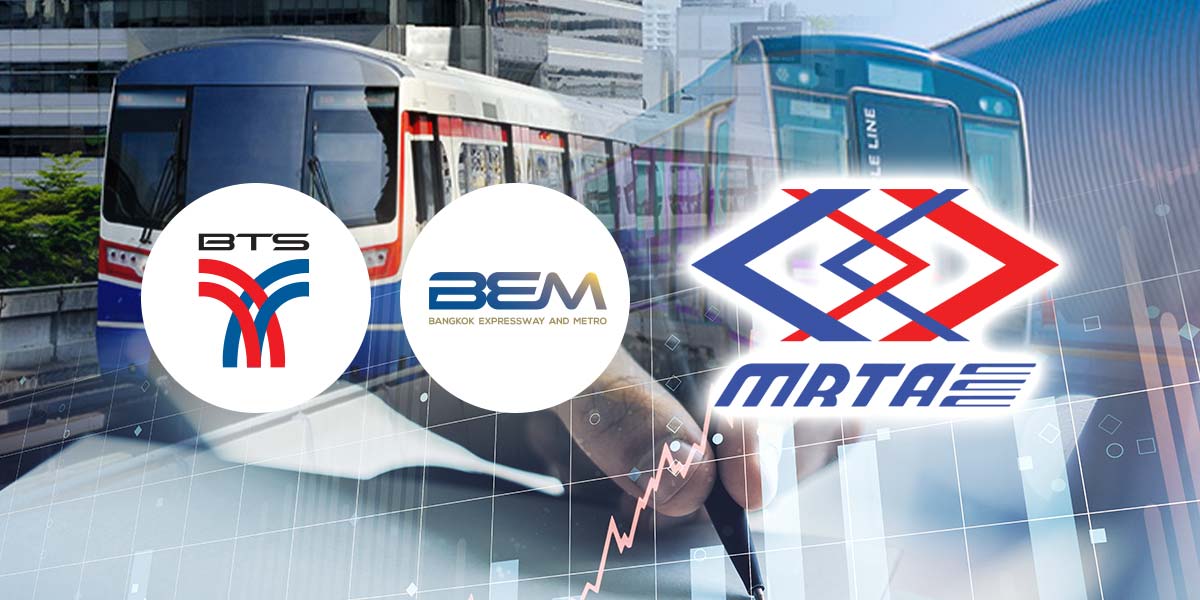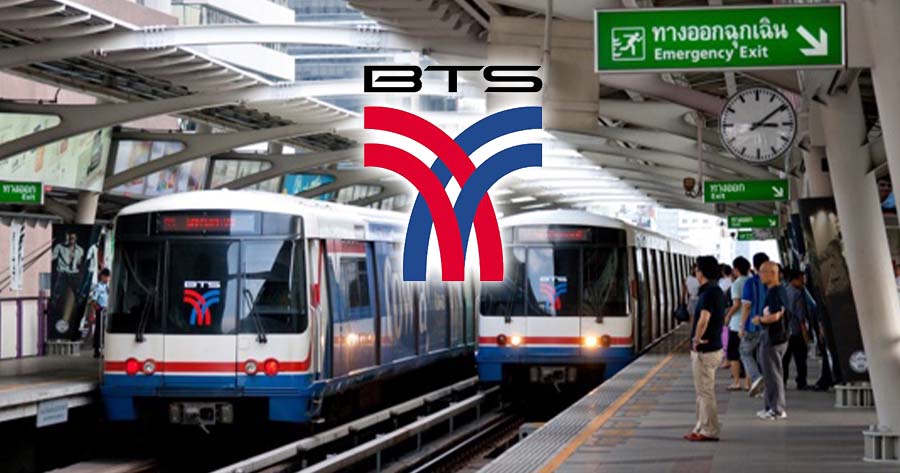Phiphat Ratchakitprakarn, Deputy Prime Minister and Minister of Transport, revealed that at the first 2025 meeting of the Committee for Driving the Policy on Determining Mass Transit Fare Rates to Reduce the Public’s Cost of Living, held on 29 October, the committee approved the holistic management and centralization of the electric railway system under a “Single Ownership” model.
The Mass Rapid Transit Authority of Thailand (MRTA) will be the sole agency overseeing, managing policies, fare structures, and the national ticketing system, ensuring all metro projects fall under unified policy management. This approach aims to set fare rates that benefit the public.
This concept aligns with the Joint Ticketing System Management Act, which is currently awaiting implementation. Once enforced, it will serve as the “core structure” of the common fare system and seamless travel for the future, building an accessible, affordable, and fully integrated national public transport network.
However, implementing the single ownership approach requires transferring all railway projects back to state ownership under MRTA’s management. Therefore, negotiations with the two private metro operators—BTS Group Holdings Public Company Limited (SET: BTS) and Bangkok Expressway and Metro Public Company Limited (SET: BEM)—are necessary to buy back the rail concessions and subsequently contract the operators to manage revenue collection and remittance to the state, leveraging their expertise in metro operations.
Moreover, the committee also approved the “Daily Pass” ticket initiative for the Red and Purple Lines, aiming to offer convenience and value under the government’s policy to “reduce people’s expenses.” The Ministry of Transport will launch the “daily pass” from 1 December 2025 to 30 November 2026 to lower travel costs for the public.
The pass covers both the Red Line commuter rail and the Purple Line metro, using the EMV Contactless/MRT EMV/Mangmoom EMV systems for seamless connectivity. This will help multi-trip commuters better control and optimize travel expenses, and is an enhancement from the popular “THB 20 flat fare” policy from the past two years.
As for whether the THB 40 daily pass model will be expanded to other mass transit lines, this will depend on public response and the success of the Red and Purple Lines. Increased ridership will offset potential state revenue loss.
A source from the Ministry of Transport stated that the committee also tasked MRTA to undertake the following studies:
1) Analyze the feasibility for MRTA to become the single oversight body for all lines, handling the transfer of rights, revenues, and liabilities for the main and extension Green Line, Gold Line, and Red Line from their current holders to MRTA under legal procedures.
Currently, the main and extension Green Line and Gold Line (BTS concessions) are managed by Bangkok Metropolitan Administration (BMA), while the Red Line is supervised by SRT Electrified Train Company Limited (SRTET), a subsidiary of the State Railway of Thailand (SRT). MRTA already manages the Blue, Purple, Yellow, and Pink Lines.
2) Conclude the fare policy framework in line with government efforts to ease living costs, carefully analyzing the ridership and increased revenue against the loss or compensation required according to Budget Bureau guidelines.
3) Consider amendments to concession agreements, joint investment contracts, and O&M contracts with all private sector metro operators, evaluating the use of future fare revenues as compensation funds for private partners to ensure continuous and sustainable service without raising public debt or fiscal burdens. Approaches to negotiating with the private sector to source funding for operation in initial stages are also sought.
Currently, some lines use a public-private partnership’s (PPP) Net Cost model—where private operators manage, collect fares, and share revenues with the state—meaning the government cannot fully control fare rates for public benefit. For example, although MRTA oversees the Blue Line, BEM holds the concession as a PPP Net Cost contract.
Therefore, MRTA must negotiate with BEM to switch the contract from PPP Net Cost to PPP Gross Cost, allowing the state to directly set fares in line with policy. MRTA, together with the Ministry of Finance, must carefully study compensation mechanisms to avoid breaching public debt limits during contract amendments.





